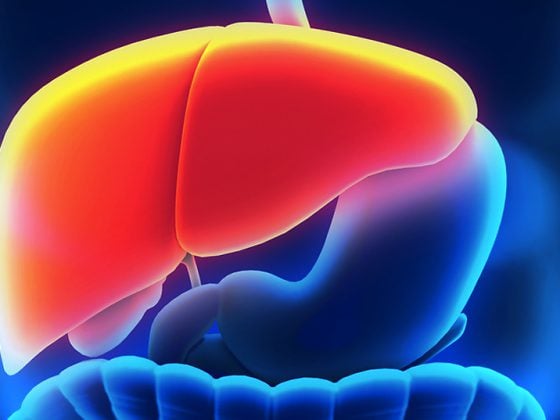This year’s EAACI Congress was held in Vienna. Among other things, there was news on immunotherapy for food and inhalant allergy. Oral immunotherapy, in which the respective food protein is administered as a powder or administered as a capsule, can be used safely and effectively over an extended period of time, according to the conclusion of an ongoing Phase IIb study called ARC002. In turn, sublingual immunotherapy appears to help not only against grass pollen-induced allergic rhinoconjunctivitis, but also to reduce the risk of asthma.
Immunotherapy is based on clinically supervised administration of allergenic proteins in increasing doses with the goal of subsequent desensitization or even tolerance of the protein. The mechanism of action is postulated to be primarily the induction of regulatory T and B cells. In addition, allergen-specific, “blocking” IgG antibodies are also formed. Although oral immunotherapies (OIT) against peanut allergy have already been tested in various studies and have been shown to be quite successful, there are still many unanswered questions regarding the optimal duration of therapy and the level of the maintenance dose or long-term safety of such an approach. In previous Phase II studies, AR101 – a peanut-derived standardized pharmaceutical compound for oral immunotherapy – was shown to reduce the risk of severe allergic reactions in a double-blind, placebo-controlled peanut exposure (so-called “food challenge” or food test). At the congress, there was now an update on the safety profile after one to two years of oral immunotherapy with AR101.
This was an unblinded follow-up called ARC002, in which earlier participants on placebo had switched to AR101 (titrated up to 300 mg/d). These crossover patients again underwent a placebo-controlled food challenge with double-blinding after two weeks. Those (there were 20) who tolerated a total of 443 mg of peanut protein progressed to three months of maintenance therapy with 300 mg/d of AR101. Here, they joined the 20 patients who had already received AR101 from the start and had begun the maintenance phase with it directly. After the three months, all 40 participants again underwent a food test, the results of which had been published in February 2016 [1]: At this time, 100%, 90%, and 60% tolerated a cumulative dose of 443, 1043, and 2043 mg of peanut protein, respectively. Two people needed unique doses of adrenaline during the Food Challenge. For your information, 1043 mg of peanut protein is roughly equivalent to four peanuts. 90% of the participants could be desensitized to this amount.
After this re-test of nutrition, patients or their parents or families could decide whether to continue to titrate up to a dose of 2000 mg/d or to remain at 300 mg/d. The authors now presented first results on the safety of the compound during this extended maintenance phase at EAACI 2016.
Safety better in low maintenance dose group
Overall, further up-titration to 2000 mg/d was considered reasonable and feasible in 72.5%, or 29 subjects, and in 27.5%, or 11, the dose of 300 mg/d was maintained during extended follow-up. Three subjects had to discontinue the study after successful uptitration. Treatment-associated, but non-severe, anaphylaxis occurred overall, requiring epinephrine. In three other participants, the target dose could not even be reached; they had to go back down to 300 mg/d, but were able to remain in the study. There were no dropouts or serious adverse events to report in the low maintenance dose group.
During the phase in which all participants received 300 mg/d (i.e., both crossover and those already receiving AR101 at baseline), a mean of one treatment-associated adverse event occurred every 80 days. With subsequent high titration, the rate remained relatively stable (one adverse reaction every 102 days), whereas with low dosing it decreased markedly over time (one adverse reaction every 625 days). Severe treatment-associated adverse events were not found in either group.
Conclusion of the authors: AR101 appears to be amenable to maintenance therapy, especially at the lower dose, as it is well tolerated and even improves with progression. Most side effects are mild, typically involving controllable gastrointestinal problems that occur early in the high-titration process. A corresponding phase III trial called PALISADE, which aims to definitively clarify the benefit-risk profile of the lower maintenance dose, is underway. Previous research [2–4] suggests that a high degree of desensitization can be achieved with a daily administration of 300 mg of peanut protein. In some cases, patients in these studies tolerated as much as 5000 mg after at least one year of maintenance therapy. It is therefore possible that the effect of AR101 can even be increased over time.
Biomarker analyses from the prolonged maintenance phase, also presented at the congress, also indicate that AR101 reduces peanut-specific IgE levels, but increases the corresponding IgG4 levels, which are discussed as protective in allergy.
News on SLIT as asthma prevention
Sublingual immunotherapy (SLIT) with Grazax® is approved as a disease-modifying therapy for grass pollen-induced rhinitis and conjunctivitis in adult patients with positive prick test and/or positive specific IgE test to Phleum pratense (timothy grass). Administration is also possible in children five years and older, but only after careful indication. One tablet of Grazax® contains 75,000 SQ-T (biological activity unit). Since, as mentioned, the substance is considered to be a disease modifier, the so-called GAP trial (Grazax® Asthma Prevention) was initiated to test whether the recommended daily administration over three years can also significantly reduce the risk of progression (e.g. asthma) compared to placebo. The follow-up period covered another two years.
The randomized double-blind study involved 812 children from eleven European countries aged five to twelve years with grass pollen-related allergic rhinoconjunctivitis. They were not allowed to have any signs of asthma (even in their medical history). During the two grass pollen seasons before, they had to have received symptomatic treatment.
Top-line results of the study presented at the congress showed that SLIT tablet reduced the likelihood of asthma symptoms (such as wheezy breathing, chest tightness, shortness of breath, or cough for more than 10 days) or use of asthma medications by a significant 34% compared with placebo after the five-year period overall (OR 0.66; p<0.05). This benefit compared to placebo was significant from the second year and sustained throughout the period with relative risk reductions of 36-50%. It showed up throughout the year in the two-year follow-up.
Over the entire five years, as expected and consistent with previous studies, symptoms of grass pollen-induced rhinoconjunctivitis were also reduced by up to one-third (p<0.005 for the entire five years). The corresponding medications had to be taken significantly less often. The authors emphasized that the positive effect persisted for the remaining two years after the three years of therapy, again clearly confirming the benefit of immunotherapy in allergic rhinoconjunctivitis.
What the groups did not differ in was the time to asthma diagnosis (defined as reversible damage to lung function). The verum was not superior to placebo in this respect – quite remarkable, since this was the primary endpoint of the study.
Source: EAACI Congress, June 11-15, 2016, Vienna
Literature:
- Bird JA, et al: The Efficacy of AR101, a Peanut-Derived Pharmaceutical for Oral Immunotherapy (OIT), Is Maintained and Tolerability Is Increased with Low-Dose Maintenance Therapy. J Allergy Clin Immunol 2016; 137(2): AB408.
- Jones SM, et al: Clinical efficacy and immune regulation with peanut oral immunotherapy. J Allergy Clin Immunol 2009 Aug; 124(2): 292-300, 300.e1-97.
- Cronin J, et al: Low Dose Maintenance Peanut Oral Immunotherapy Can Produce Sustained Unresponsiveness. J Allergy Clin Immunol 2014; 133(2): AB103.
- Vickery BP, et al: High Rate of Sustained Unresponsiveness with Early-Intervention Peanut Oral Immunotherapy. J Allergy Clin Immunol 2015; 135(2): AB155.
DERMATOLOGIE PRAXIS 2016; 26(4): 42-43











